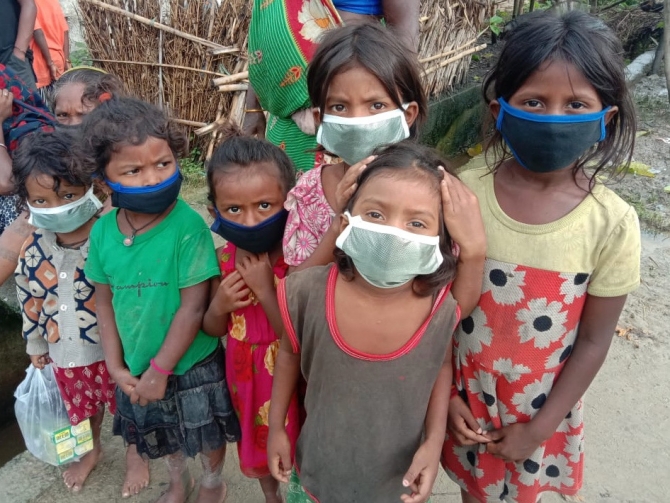A Better Tomorrow for Today’s Children in Rural Nepal

Parents’ enthusiastic support is so important in ensuring their children’s school attendance and academic achievement. In rural Nepal, many of today’s parents were not themselves afforded the opportunity to attend school for very long, or at all, during their own childhoods – but of course they want better opportunities for their children.
Educate the Children (ETC) is currently gearing up for a new program cycle in rural Ramdhuni Municipality, Sunsari District – some nine hours by car to the southeast of the national capital of Kathmandu. The adult residents of the villages where we’re working are, according to a recent comprehensive study[1], among the very the least likely to have completed basic education – only 17.6 percent ever passed grade 8, compared to 46.8 percent nationwide. They are also highly unlikely to be linguistically proficient[2], either in Nepali or in their heritage language(s): the proficiency rates are, respectively, 15.6 percent and 21.0 percent, compared to 62.9 percent and 54.7 percent nationwide.
The good news is that enrollment in the Ramdhuni schools was already fairly high, and the buildings in general are reasonably sturdy and in adequate condition – although they often lack furniture and classroom materials. However, there was and still is room for improvement in terms of both attendance and quality of the educational experience.
Additionally, we now must and will ensure that any advantages already gained aren’t lost because of the COVID-19 pandemic. As was the case worldwide, the schools in Ramdhuni were closed for extended periods during 2020. Although there were educational broadcasts available to Ramdhuni’s children over FM radio during the period before their schools reopened, those could not be nearly as effective as being physically present in school – especially for the children who did not have the requisite books or even adequate school supplies to follow along and review/retain the information.

The schools with which we’re working also tend to be among those that do not have the resources to help teachers and students follow best practices in public health. Back in the fall, ETC distributed 1,500 washable/reusable masks and three months’ worth of antiseptic soap to families. We will provide these same resources plus classroom cleaning supplies to the direct benefit of more than 1,000 students in 13 schools, in the coming months. By way of addressing the pre-existing challenges, we will also provide basic school supplies – pens, pencils, erasers, sharpeners, and notebooks – to ensure that children are not prevented from attending school due to lack of these very basic resources. In the years to come, as demand warrants and funding permits, we also intend to provide the classrooms with useful furniture and materials and support the teachers via professional development and networking opportunities, which they surely would not have otherwise. Training activities such as these, which we have offered in response to high demand during every program cycle up until now, ensure that countless current and future students will have more enriching academic experiences.
Parents are eager for their children to have better opportunities than they themselves had, and ETC is committed to helping that dream come true!

Educate the Children’s mission is to work with women and children in Nepal to improve health, welfare, and self-sufficiency by building skills that families can pass down to later generations. We provide training and resources to help thousands of marginalized and impoverished people make better lives for themselves. For more information about ETC’s work, please click here to visit our Photos and Publications page, or click here to visit our YouTube channel.
References:
[1] State of Social Inclusion in Nepal: Evidence from Nepal Social Inclusion Survey 2018, Summary. Central Department of Anthropology, Tribhuvan University, Kirtipur, Kathmandu, Nepal. © 2020. [2] “Proficiency” includes literacy as well as oral/aural skills.